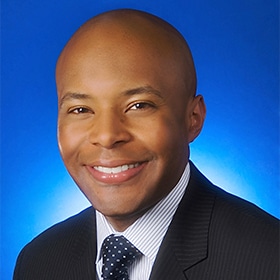[PODCAST] Healthcare Thought Leadership: Building a Plan from the Ground Up

Johnny Smith, Senior Director of Marketing and Communications, Ascension Health
One of the things I love most about my job is the opportunity to meet with some really great people doing amazing work in healthcare. Recently, I spoke with Johnny Smith, Senior Director of Marketing and Communications at Ascension Health, the nation’s largest non-profit health system.
I reached out to him after hearing about his talk at SHSMD 2018, “Driving Thought Leadership for the Nation’s Largest Non-Profit Health System,” which we discuss in today’s podcast. You can listen by pressing play below, or keep reading for my key insights.
How Thought Leadership Is Prioritized at the Largest Non-Profit Health System
Ascension Health, says Smith, focuses on the following when it comes to public relations:
- Brand positioning (if you’re interested in this topic, we discuss more in our podcast)
- Promotion of national and local service lines and priorities
- Thought leadership
And with thought leadership, Smith’s team takes a three-pronged approach.
- First, they focus on positioning Ascension’s executives and key leaders as both transformative and innovative, through both earned media and social media.
- They also focus on speaking engagements across the country, from healthcare conferences to tech conferences.
- Finally, it’s important that Ascension's leaders are recognized for their important contributions to the healthcare industry. Smith and his team focus on prioritizing key awards across all their markets.
Building Thought Leadership from the Ground Up
Smith admits that it can be daunting to think about thought leadership, but his team took it one small piece at a time.
First, they asked the most senior leaders about the topics they were interested in speaking about. Mostly, these topics centered on healthcare transformation or advocacy. That’s how they determined their key priorities.
Related: 7 Absolute Musts for Hospitals in the Age of Consumerism
- Healthcare transformation could include topics on care models, the shift to consumerism, new technologies and processes the organization is rolling out, and more.
- Advocacy topics might include preserving coverage, reducing drug prices, or addressing mental health care issues.
Then, they started talking to local marketing executives about their priorities and the messages they wanted to share. At this phase, Smith’s team made sure their goals always aligned with the organization’s advanced strategic direction.
However, Ascension Health’s thought leadership initiatives really started at the national level. They took their messages nationwide before figuring out how to tweak the message or the information for the local level in various markets.
The Right Audience and the Right Message
Throughout our talk, Smith focused on two key terms for telling stories and sharing messages: different and bold. It’s important that no matter the platform—social media, a national conference, or a local earned media opportunity—leaders are telling stories that are different and bold. And it’s just as important that they resonate with the right audience.
For many of the messages they present nationally, Ascension has to localize the content differently when bringing it to a Florida market, for example, or an audience in Kansas. They aim to position providers to talk about the capabilities that can be delivered in their markets to improve the overall quality of life.
A Note on Awards and Thought Leadership
Smith pointed out that receiving awards is not an independent strategy; it’s part of their overall strategic thought leadership plan.
As with any other part of thought leadership, it’s important to understand the strategic direction of your organization. When you know your focus, you can find those key nuggets of information that help you tell a story.
So, rather than submitting to as many awards as possible, you start with the message. Ask:
- What’s the direction of your organization?
- What’s the story?
- And who is the leader who can best convey that story?
From there, you can research awards that will celebrate that leader in the most appropriate way and allow her the recognition she deserves.
What Should Listeners/Readers Walk Away With?
I ask this in nearly every podcast: “What’s one thing you’d like our listeners to walk away with?” And Johnny Smith had some really important things to say.
First, he had a reminder to anyone working in marketing, communications, and public relations in healthcare:
“We are all fortunate to be in a leadership position. We are the face of our organizations and have direct access to our senior leaders, but also we control a lot of content that goes out. So it’s important when we have that information to take advantage of that leadership opportunity.”
And to Smith, that means ensuring that messages are communicated internally to get everyone on the same page. In other words:
“Telling your own story internally in different ways so your most senior leaders and (in our case) 156,000 associates are aware of the work we’re doing to advance the mission and advance the brand experience for those we are fortunate to serve.”
Finally:
“If you have a leadership position, it’s important for people to know what you do. You have to inform them of the great work that you’re doing because we’re all aiming at the same target, and that is continually disrupting ourselves so we can deliver care in the most appropriate way.”
Related Articles:
9 Healthcare Marketing Podcasts You Can’t Miss
[PODCAST] Your Social Media Policy: The Missing Piece in Healthcare Marketing
10 Best Healthcare Podcasts You Need to Hear
Your Unauthorized Guide to Becoming a Healthcare Thought Leader
[PODCAST] The Patient Voice: Incorporating Feedback into Your Strategies









